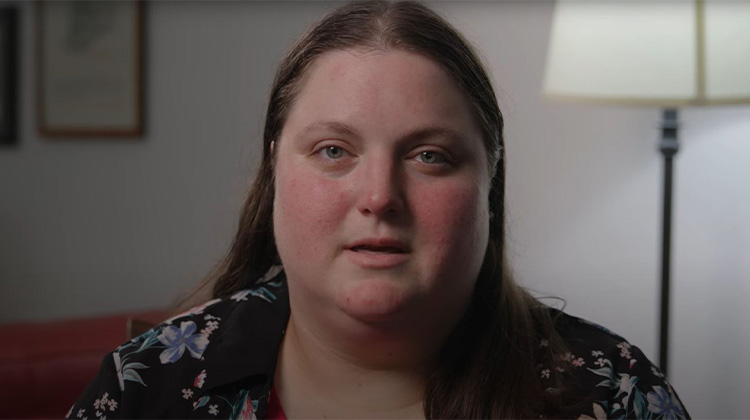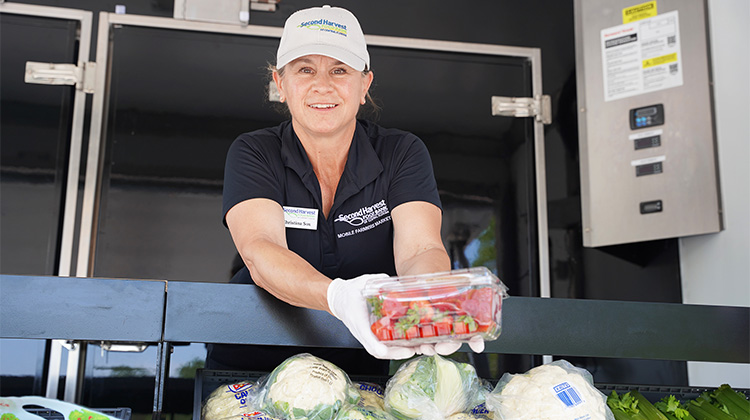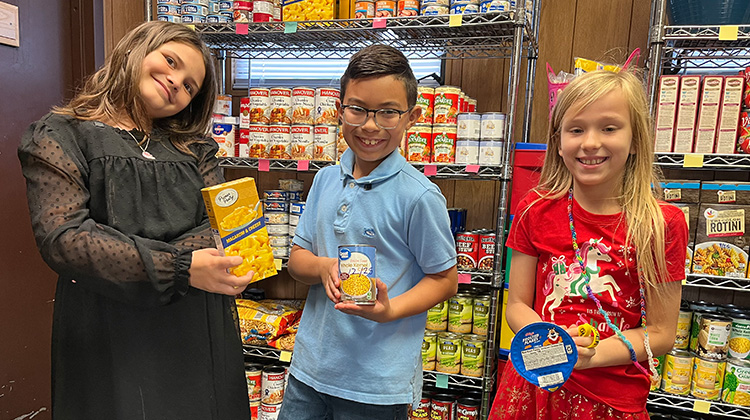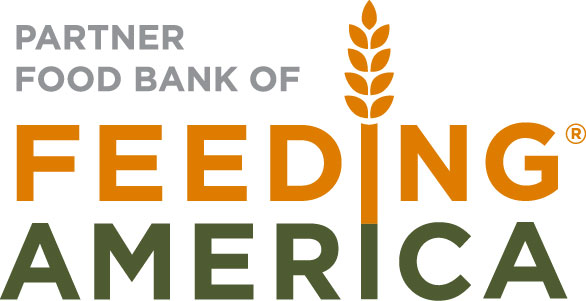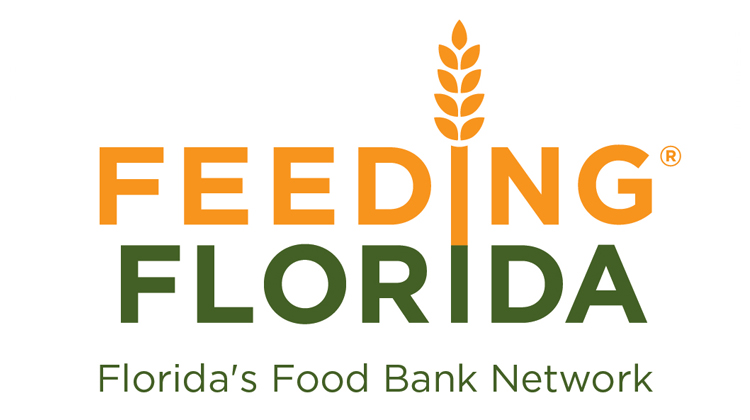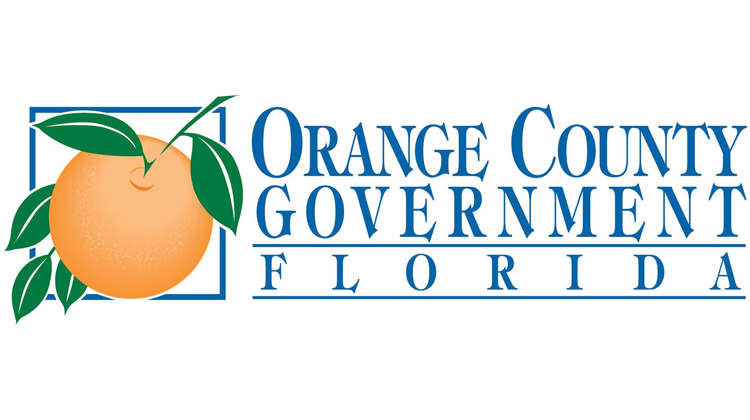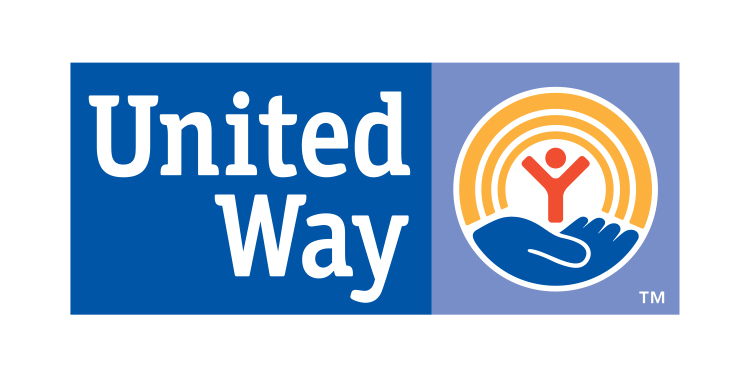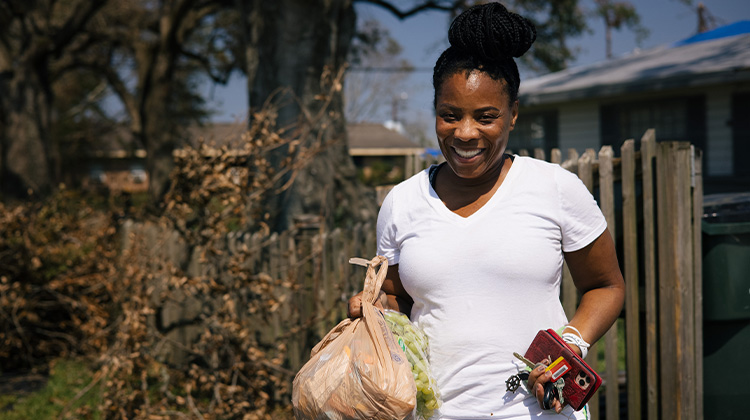
March is National Nutrition Month, a time to focus on how what you eat affects your health. There’s more to consider about your health than simply eating better and exercising. According to the County Health Rankings Model of Health, our personal health choices only account for about 30% of our overall health.
Your health is significantly influenced by factors beyond your individual control, such as access to healthcare, where you live, and your social circumstances like income, education, and support from friends and family. These are known as the Social Determinants of Health. They include the conditions of your birth, life, work, leisure, and worship, as well as your age. These factors deeply affect your daily health and your ability to make healthy choices.
Neighbors facing food insecurity can experience challenges with more than just food. They need help with employment, affordable housing, paying utilities, and more. These Social Determinants of Health can have as much of an impact on their ability to stay healthy as the food provided by Second Harvest Food Bank of Central Florida and its network of feeding partners.
One example is a single working mother who had difficulty affording food for her household and paying for utilities. This mom was skipping meals and risking her health to ensure that her children had food on the table. She found support in an unexpected place: her doctor’s office.
Your health is significantly influenced by factors beyond your individual control
Her healthcare provider received training from Second Harvest to screen for food insecurity at their clinic. During her child’s appointment, the healthcare provider asked this mother about her food needs and connected her to a community health worker. The community health worker shared resources for utility bill assistance and helped the neighbor apply for SNAP benefits with Second Harvest’s Benefits Connection team so she could afford food for her family and stop skipping meals.
For this neighbor to continue accessing healthy foods for her whole household, the extra SNAP benefits will be an incredible help. However, earning a higher wage and reducing living costs will be vital in sustaining healthy nutrition access for her family.
By recognizing how SDOH affects a neighbor’s ability to access nutritious food and collaborating with local partners and resources, Second Harvest can be part of a larger effort to impact individual health and well-being.
It is essential for Second Harvest to distribute healthy, nutritious foods to neighbors; that commitment remains steadfast. What is evolving is how to sustainably connect neighbors to healthier foods due to the complexities of all the interconnected Social Determinants of Health.
It can be as simple as sharing community resources with neighbors enrolled in Bring Hope Home or Medically Tailored Meals programs. It can also be as complex as the interconnected work of the Health and Hunger Task Force of Central Florida, where Second Harvest works with a coalition of local healthcare providers and nutrition-focused organizations that identify opportunities to measurably impact health by using food as medicine.
This shift in thinking takes the entire community, from feeding partners and community leaders to healthcare practitioners and nonprofits, working together to address Social Determinants of Health.
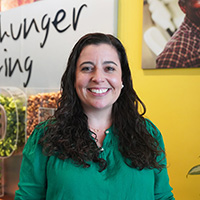
Angela Corona, MPH, CPH,
Health Systems Manager
at Second Harvest Food Bank of Central Florida.


